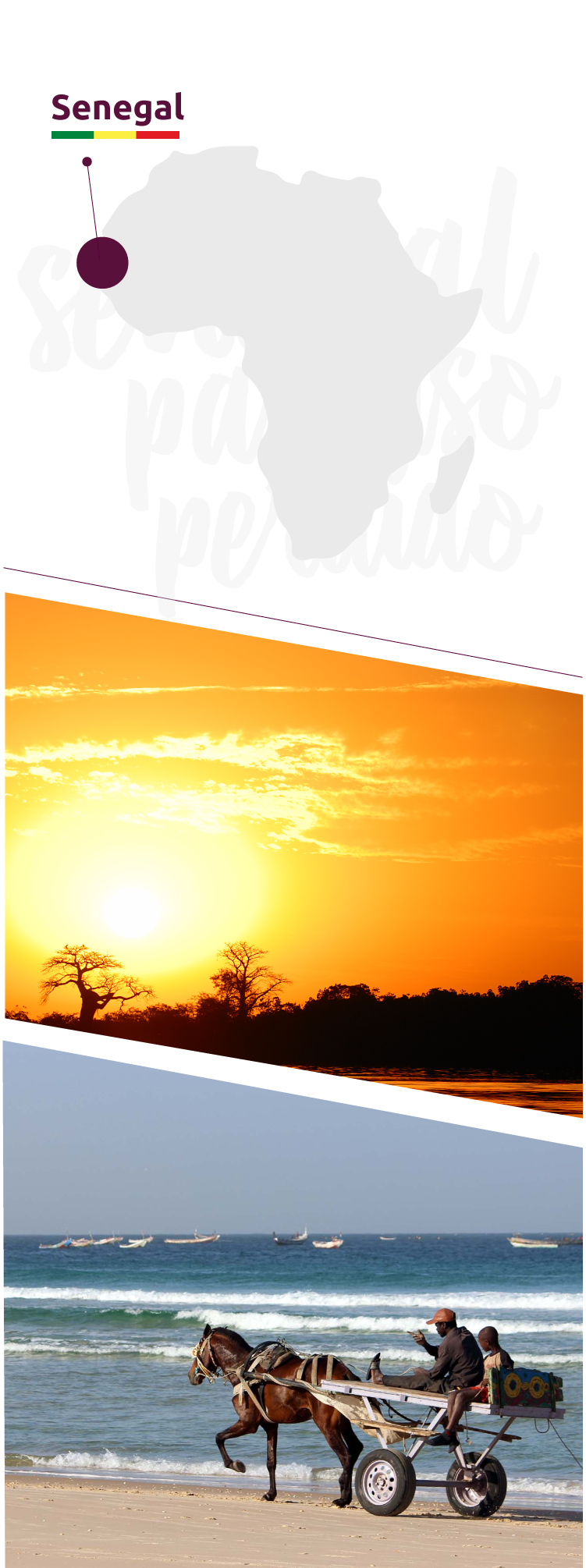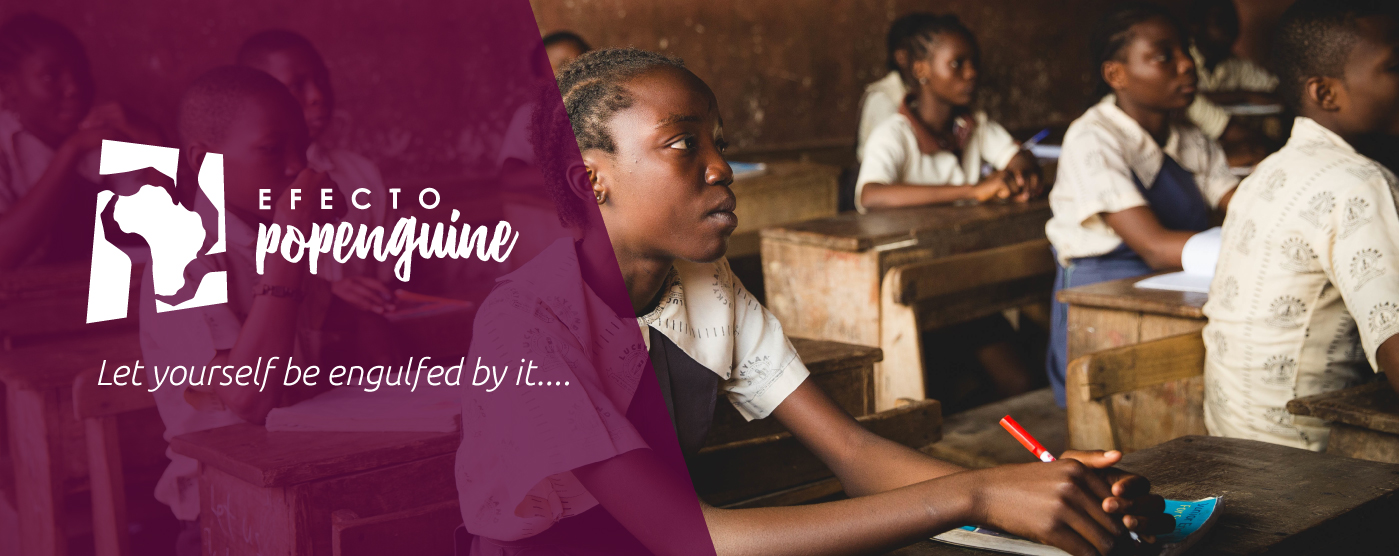Senegal
A paradise...
You still don't know it?
A paradise to be discovered
The Republic of Senegal is a sovereign state in West Africa that gained its independence from France in June 1960.
Senegal is organized into fourteen regions and owes its name to the Senegal River, which marks the country's eastern and northern borders; it is bordering the Atlantic Ocean to the west, Mauritania to the north, Mali to the east and Guinea and Guinea-Bissau to the south.
Dakar, the capital of Senegal since 1960, is situated in the westernmost point of the country, on the Cape Verde Peninsula.


Climate
The climate is tropical with two seasons, a dry season from November to June and a rainy season from June to October.
The country's good climate makes it an important tourist destination during the winter in Europe, as well as a perfect place for agricultural activity, which, reinforced by its good logistics, facilitates exports to the European continent.
Nature
Parks and nature reserves represent 8% of the national territory. They play an important role in the preservation of the environment and contribute significantly to the development of tourism
A total of 169 mammal and 540 bird species have been identified in these protected areas.
Economy
The country's main export products are fish, cotton, cloth, peanuts and the main foreign markets are France, the United States, China, Italy, India and the United Kingdom.
Population, language and religion
Senegal has a population of more than 13 million, of which approximately 42% live in rural areas, with great ethnic diversity.
The official language is French, while Wolof is considered the national language, although more local languages are spoken.
The official language is French, while Wolof is considered the national language, although more local languages are spoken.
Musical tradition
Senegal is known throughout Africa for its musical influence and heritage, thanks to the popularity of mbalax, which has its origins in the Serer percussive tradition.
It is also known for the typical West African tradition of storytelling by the griots, who have kept the region's history alive for thousands of years through their words and music. The griot profession is passed from generation to generation, and requires years of training and learning in genealogy, history and music. Griots give voice to generations and generations of African society.
Education is the most powerful weapon you can use if you want to change the world
Nelson Mandela 
Strive not to be a success, but rather to have courage
Albert Einstein 
The only way to do a great job is to love what you do
Steve Jobs 


